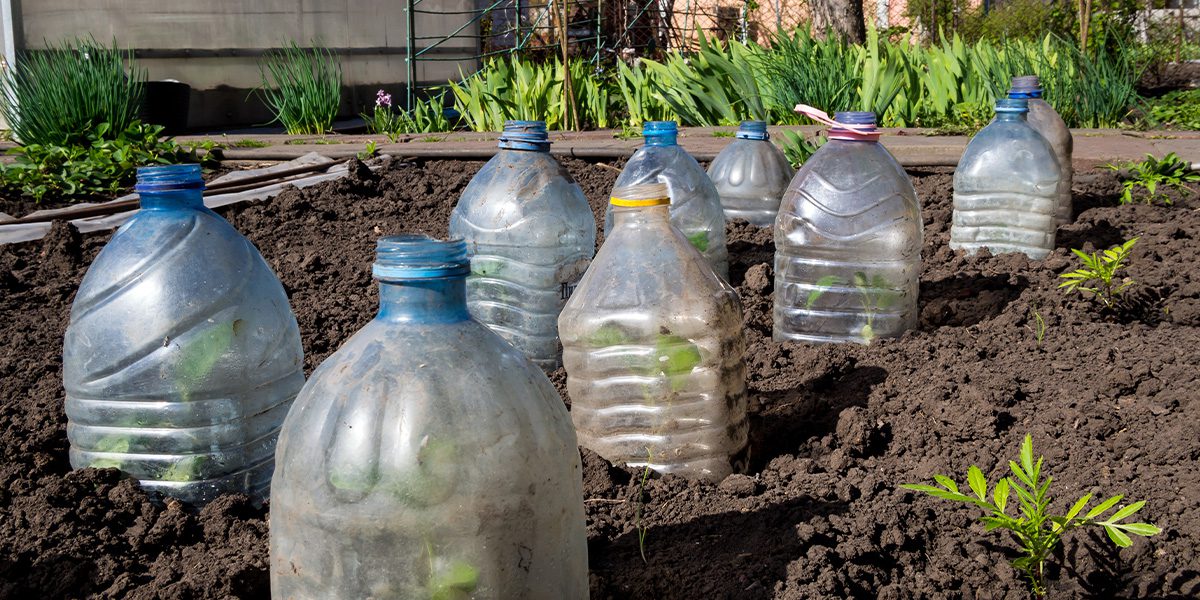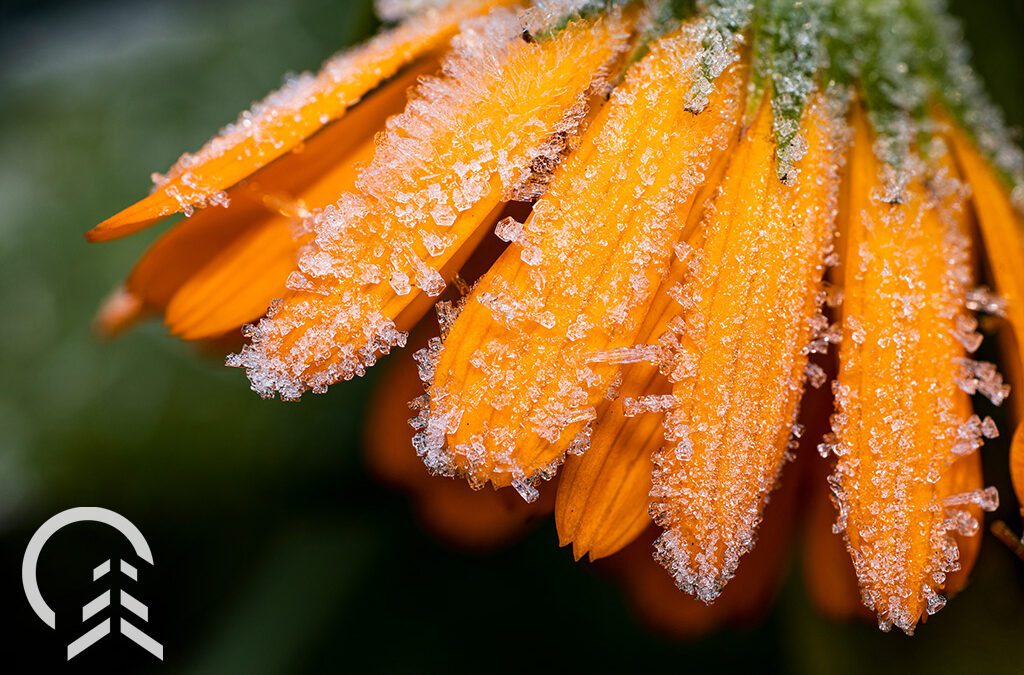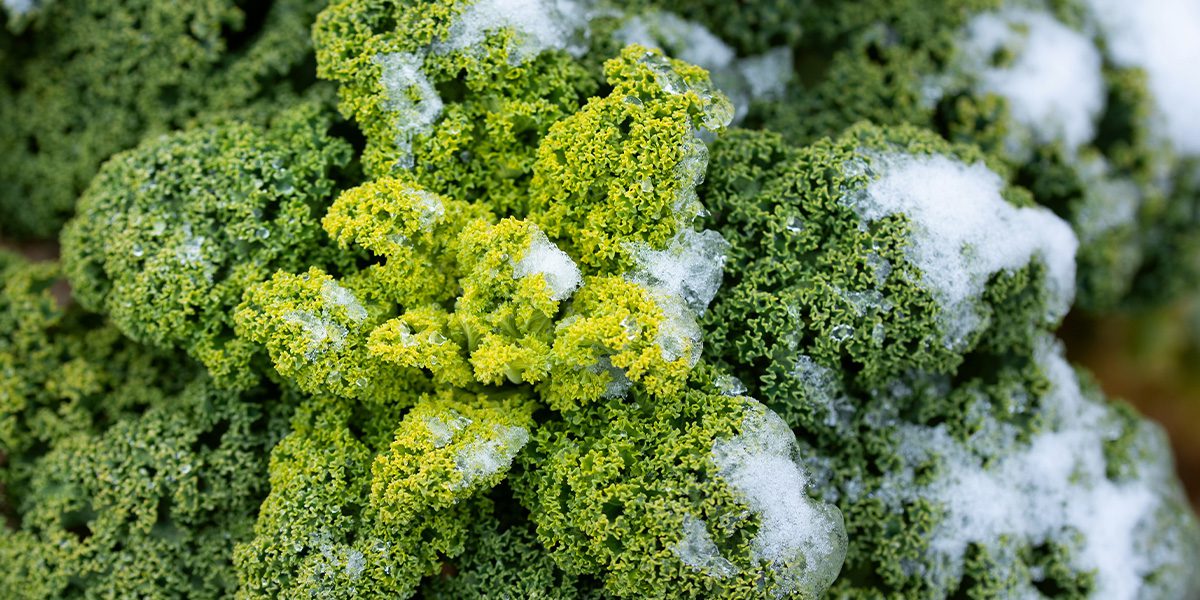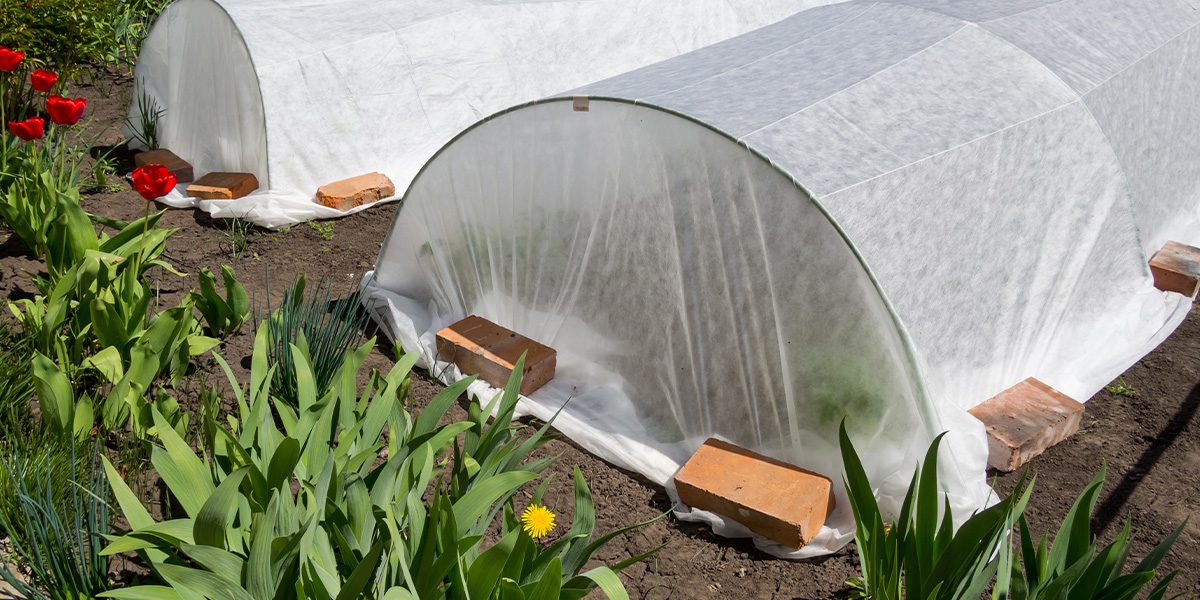The wavering weather of late winter and early spring always comes with uncertainty. Just as we start to think that the warmer weather is here to stay, a blast of cold can suddenly come through overnight, taking the unsuspecting gardener by surprise. Our inconsistent Chicago weather can put our gardens in a rather precarious position, but fear not; there are plenty of ways to predict, protect, and save your plants from frost damage. Here’s what you need to know!
How to Know When a Frost is Coming
Ever go for a stroll after sunset and feel that the air is unexpectedly cool? In these cases, when you find yourself reaching for your gloves or catching the uncanny scent of coming frost in the air, it’s time to think of your garden. For those who have yet to develop this sixth sense, the weather forecast is always a trusty source of updates and alerts. It’s a good idea to watch it closely in early spring so you know when to prepare for overnight frost.
Of course, there are small differences in each of our microclimates that may not be reflected in regional weather reports. If overnight lows are forecasted anywhere around 32ºF, it’s wise to take protective frost measures in your garden.
Which Plants Need Protection From Chicagoan Frost
A sudden overnight frost can prove disastrous for many of the plants in your garden. Here are the plants that’ll need some saving next time freezing temperatures are in the forecast:
- Newly-Planted Perennials: While established perennials can easily withstand frost, newly-planted perennials will need some extra protection.
- Annuals: Some annuals may withstand a light frost, whereas others may be damaged. If you’re ever in doubt over whether your annuals need protecting, do a bit of research on the kinds you’re growing, or cover them all just to be sure.
- Tender Vegetables: Many vegetables, including beans, cucumbers, tomatoes, eggplant, peppers, squash, melons, sweet potatoes, sweet corn, pumpkins, and basil, will die when exposed to any level of frost, and so must be protected.
Frost and Freeze-Resistant Vegetables
While frost can damage many kinds of vegetables, many more are surprisingly tolerant of freezing temperatures. Here are some vegetable varieties you won’t have to worry about in an unseen frost:
- Vegetables that can withstand a light frost: Some vegetables that tolerate a light frost (28-32ºF) include carrots, beets, celery, cauliflower, chard, lettuce, onions, chives, garlic, potatoes, parsnips, and rhubarb, though it’s still necessary to protect them from hard or long frost events. If you don’t know how severe a frost will be, it’s wise to protect them anyways, just in case.
- Vegetables that can withstand a hard frost: the hardiest of vegetables that don’t need to be protected from frost include Brussels sprouts, broccoli, collards, cabbage, kohlrabi, kale, mustard greens, parsley, peas, rutabaga, radish, turnips, and spinach. They can be safely planted before the last frost date and easily withstand temperatures below 28ºF. However, if the forecast calls for a hard freeze, it’s still prudent to cover them to prevent damage.
How to Protect Your Chicago Garden from Frost Damage
When frost is imminent, don’t worry: there are many ways you can save your plants from damage. The key is to cover them overnight in one way or another, like a makeshift greenhouse. Here are tips and techniques to help guide you:
- Cover Plants With a Tarp or Sheet
Set up some stakes around your garden and cover your plants with a tarp or old bed sheet secured to the ground with stakes or rocks so that no cold air can get in. You’ll also need to ensure that the stakes hold the sheet above the plants so they’re not touching the frost-covered material. With this in place, your plants will remain free of frost damage.

- Create Shelters Out of Old Milk Jugs or Buckets
You can also use a milk jug with the top cut off or any spare buckets to cover plants. All you need to do is place them over any sensitive plants overnight with a brick or rock on top to secure them against the wind. Just remember to remove these in the morning, when the danger has passed, so the plants don’t over-heat.
- Build Row Covers
Instead of just putting a sheet over your crops, you can prepare for frost ahead of time by setting up low hoops of PVC piping over your rows of plants. With these hoops in place, you can then simply cover them with polyester fabric or bed sheets when frost is expected. These row covers are great for protecting your plants against frost and can extend your growing season into the early spring and late fall.
- Bring Containers into Your Garage
You can bring any frost-sensitive plants growing in containers into your garage or shed overnight. Remember to bring them out again in the morning when it’s warm enough.
- Water the Evening Before
Moist soil retains warmth much better than dry soil. Watering your plants before an evening frost will help the soil give off warmth during cooler overnight temperatures, helping your plants.
Note: remember to remove any coverings the following morning once the cold has passed and the sun starts warming up the garden.
Can I Save My Plants from Frost?
In the off-chance that your plants are damaged by frost, don’t lose hope; they still may recover. Plants are slow-moving organisms, so give them a few days to show their true symptoms before you decide what to do with them. If they’re still showing signs of life, remove the damaged leaves and allow them to recover. It still may be faster to nurse them back to life than to replant from scratch.
For the prepared gardener, the risk of frost is not a cause for concern or a reason to prolong planting. It’s just a matter of keeping an eye on the weather and covering the plants overnight if necessary. For more questions on saving plants from frost, don’t hesitate to visit our garden centers in Bloomingdale and Carpentersville!




